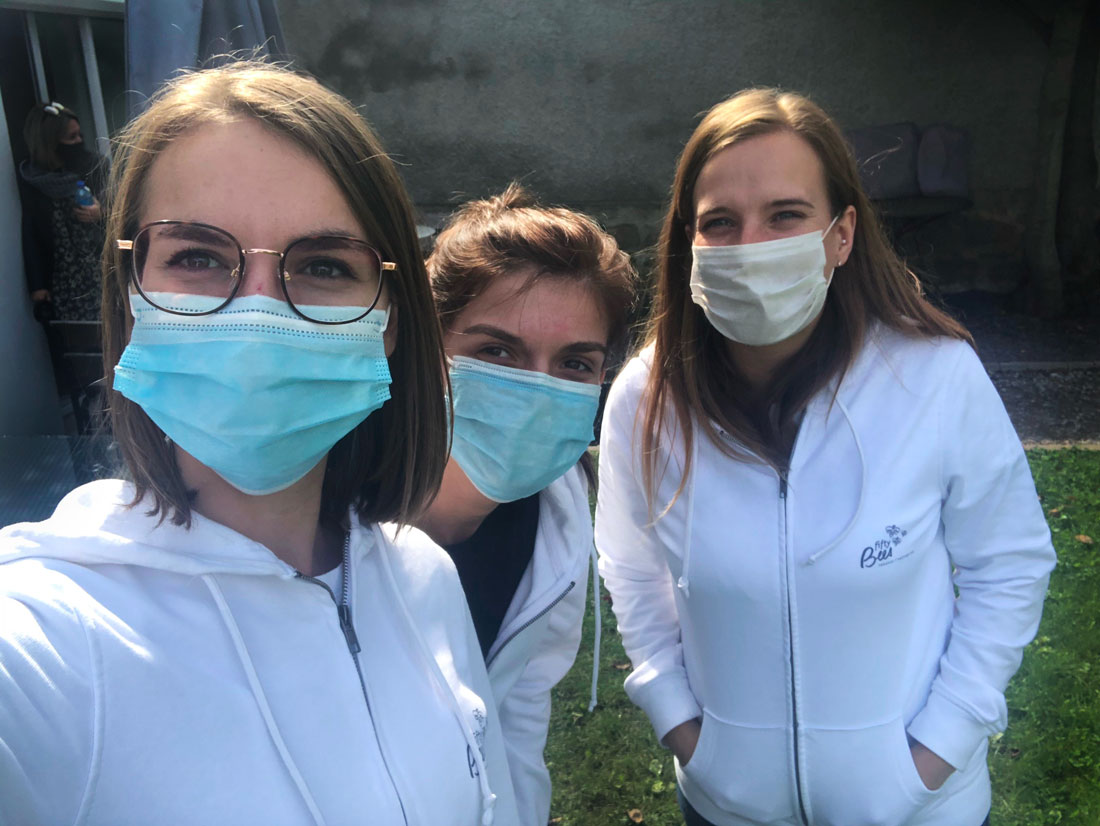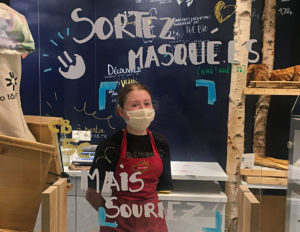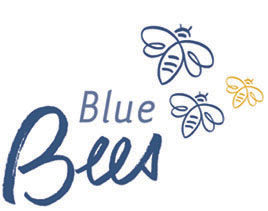02 Oct Smile, you’re under mask!
Smile is the characteristic of Man… A smile that has been wrecked since the wearing of masks has become mandatory almost everywhere – including within companies since September 1st.
What about the expression on our face when facial protection becomes the norm, when we have to communicate with a face 60% concealed?
It is indeed undeniable that a mask modifies our relationship with others, our visual identity and alters smile. Our very behavior changes because a mask makes exchanges straighter, more complex, less fluid. Masks hide the jaw, a part of the face which expresses many emotions (smile, laughter, anger, disgust…).

The Bees’ team keeps smiling under the mask!
A constraint source of creativity, however: to remedy this absent smile on faces, the Lyon-based company Tcheezebox has even designed models of masks that display the wearer’s own smile, so as to re-humanize exchanges…
However, let’s not forget an essential factor: a smile can be heard in the voice and seen in the eyes! Therefore, behind the mask, we must keep on smiling in all circumstances – including on the phone…
As a matter of fact, the “real” smile, commonly called “Duchenne’s smile“, named after the doctor Guillaume Duchenne de Boulogne, founder of neurology in the 19th century, or “reward smile” according to the typology of the psychologist Paul Ekman, mobilizes several facial muscles. He thus calls upon the great zygomaticus major muscle which straightens the corners of the mouth and the orbicularis which folds the edges of the eyes. A true smile of happiness is thus formed not only by the oral muscles, but also by the ocular muscles.
It is therefore our eyes, our gaze which pass on our smile and allow us to express our emotions. We communicate, thanks to our eyes, joy, sadness, gratitude, compassion, enthusiasm. Our interlocutor is able to interpret, through what our eyes express, our state of mind … and to perceive our singularity. This eye power which made Jean Gabin say to Michèle Morgan, in Quai des Brumes in 1938, “You have beautiful eyes, you know”.

Other good news that sharks in these strange times an American study conducted in 2012 by two American researchers from the University of Kansas – Tara Kraft and Sarah Pressman – shows that in stressful situations, you can feel better if you smile, even with a forced smile! 167 students placed in stressful situations were tested. The degree of stress was assessed through heart rate and the level of stress reported by the participants. It turns out that those who smiled, even if forced to smile, were less anxious than the others at the end of the test…
So above all, like the nice baker from OTao Bom in Lyon, keep smiling and claim it !
Because if smile is also contagious, it is the best remedy against gloom…

